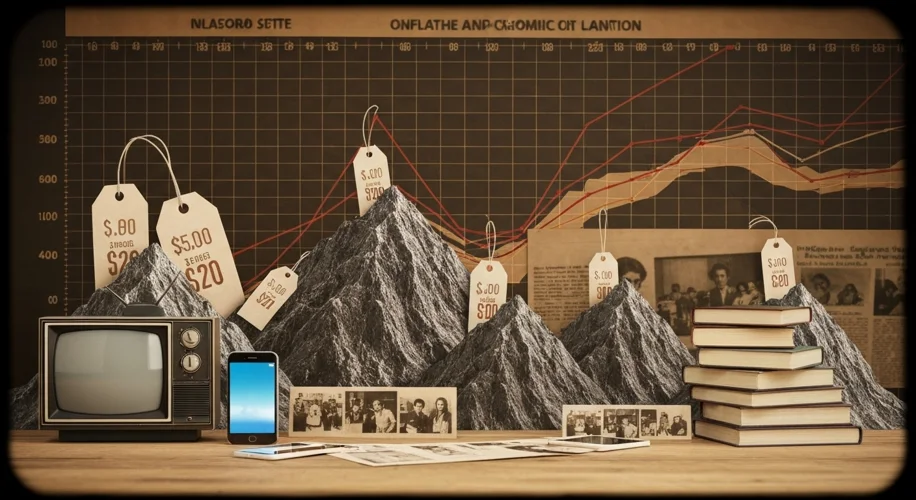It feels like we’ve been hearing a lot about inflation lately, doesn’t it? Some economists are warning about a potential ‘inflation mountain,’ and it’s got me thinking about past economic cycles. Specifically, the 1970s come to mind.
Back in the 1970s, many countries experienced a significant surge in inflation. Prices for everyday goods and services shot up, and it took a considerable effort to bring them back down. This period was marked by a combination of factors, including rising oil prices and government policies that aimed to stimulate the economy.
What’s interesting is how some of the current discussions echo those past challenges. We’re seeing global supply chain disruptions, geopolitical events affecting commodity prices, and shifts in consumer demand. These aren’t identical to the 70s, of course – technology has changed so much, and our economies are far more interconnected in different ways. But the underlying pressures can feel eerily similar.
Think about it from a tech perspective. For decades, technological advancements often led to lower prices or better value. Moore’s Law, for instance, suggested computing power would double roughly every two years, making technology more accessible. But now, we’re seeing increased demand for semiconductors, coupled with manufacturing complexities and the sheer cost of developing cutting-edge AI, which can put upward pressure on prices in certain sectors.
When economists talk about an ‘inflation mountain,’ they’re essentially flagging a period where the general price level could rise substantially and perhaps persist for some time. This isn’t just about the cost of gasoline or groceries; it can affect the cost of everything from housing to the components that go into the very technology we rely on.
My experience in the tech world has taught me that understanding trends often involves looking at history. While we shouldn’t expect a perfect repeat of the 1970s, ignoring the lessons from that era would be unwise. It highlights the importance of careful economic management and adaptability, especially when faced with complex, global economic forces.
So, while the future is always uncertain, understanding these potential inflationary pressures, and drawing parallels to past economic difficulties, can help us navigate the economic landscape more thoughtfully. It’s a reminder that economic stability isn’t a given; it requires constant attention and a willingness to learn from history.

